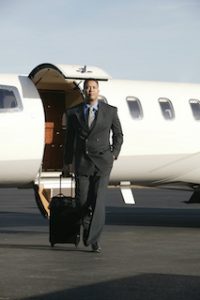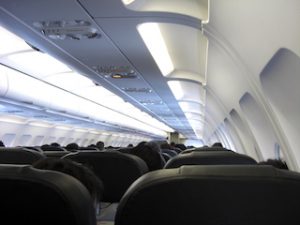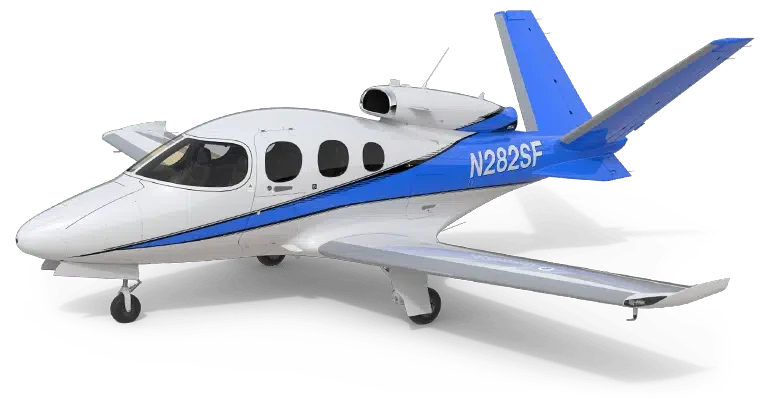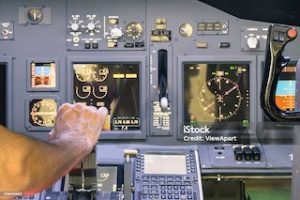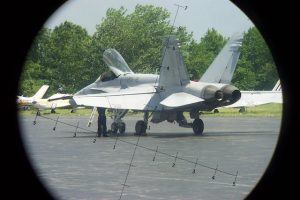The Structure of the Multi-Crew Cooperation (MCC) Course: Principles and Practical Training
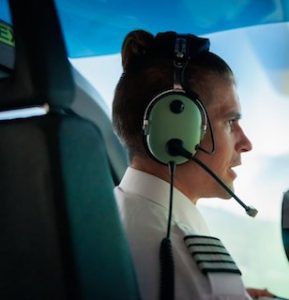 The aviation industry, known for its complexity and inherent safety requirements, necessitates rigorous and comprehensive training for its pilots. One pivotal aspect of this training is the Multi-Crew Cooperation (MCC) course. The MCC course is meticulously designed to prepare pilots for the collaborative environment of multi-crew operations, which are standard in commercial aviation. This article delves into the detailed structure of the MCC course, focusing on both the theoretical principles taught during ground school and the practical training conducted through simulator sessions.
The aviation industry, known for its complexity and inherent safety requirements, necessitates rigorous and comprehensive training for its pilots. One pivotal aspect of this training is the Multi-Crew Cooperation (MCC) course. The MCC course is meticulously designed to prepare pilots for the collaborative environment of multi-crew operations, which are standard in commercial aviation. This article delves into the detailed structure of the MCC course, focusing on both the theoretical principles taught during ground school and the practical training conducted through simulator sessions.
Ground School: Theoretical Principles
The ground school segment of the MCC course lays the foundational knowledge crucial for effective multi-crew operations. It encompasses various modules that address the technical and human factors essential for successful cockpit collaboration.
1) Communication skills
Effective communication is the cornerstone of multi-crew operations. The MCC course emphasizes the importance of clear, concise, and unambiguous communication between pilots. Pilots are trained to use standard operating procedures (SOPs) and standard phraseology, which minimizes the risk of misunderstandings. Theoretical lessons cover the mechanics of verbal and non-verbal communication, the impact of cultural differences, and strategies to overcome communication barriers. Role-playing exercises and case studies are often used to illustrate the consequences of poor communication and the benefits of effective dialogue.
2) Leadership and followership
Understanding the dynamic roles of leadership and followership within the cockpit is crucial. The course explores the responsibilities of the Pilot in Command (PIC) and the First Officer (FO). It addresses how these roles should adapt based on the situation at hand, promoting a flexible approach to leadership. Pilots are taught the significance of assertiveness and the importance of challenging decisions respectfully when necessary. Ground school modules also focus on conflict resolution techniques and the psychology of teamwork, ensuring that pilots can both lead and follow effectively.
3) Decision-making
Decision-making in a multi-crew environment involves collective input and shared responsibility. The MCC course introduces various decision-making models, such as the Decision Making Model (DMM) and Threat and Error Management (TEM). These models provide structured approaches to identifying, assessing, and mitigating risks. Theoretical lessons highlight the importance of situational awareness and the need for pilots to remain adaptable in the face of changing conditions. Case studies of real-life incidents are used to analyze decision-making processes and outcomes, providing valuable lessons on the impact of both good and poor decisions.
4) Situational awareness
Maintaining situational awareness is vital for safe flight operations. The ground school component of the MCC course teaches pilots techniques to enhance their situational awareness, including monitoring the external environment, understanding the status of the aircraft, and anticipating future events. Pilots learn to recognize and mitigate potential threats, manage distractions, and prioritize tasks. Theoretical lessons emphasize the concept of shared situational awareness, ensuring that all crew members have a common understanding of the current and anticipated flight situation.
5) Teamwork and Cooperation
Teamwork is a fundamental principle of multi-crew operations. The MCC course focuses on building trust and cooperation among crew members. Pilots are taught the importance of conducting effective briefings and debriefings, which facilitate open communication and ensure alignment on flight plans and strategies. Theoretical modules explore group dynamics, the stages of team development, and strategies to foster a positive and collaborative cockpit environment. Practical exercises in ground school often involve team-building activities and simulations of complex scenarios that require coordinated action.
6) Workload management
Efficient workload management is crucial to prevent pilot fatigue and ensure optimal performance. The MCC course teaches pilots how to distribute tasks effectively, prioritize actions, and manage time efficiently. Ground school modules cover strategies for balancing high and low workload periods, recognizing signs of overload, and implementing measures to alleviate stress. Pilots learn techniques such as delegation, automation usage, and the importance of regular monitoring and cross-checking.
7) Problem-solving
The ability to solve problems collaboratively is essential in a multi-crew environment. The MCC course introduces pilots to various problem-solving techniques and models, such as the OODA loop (Observe, Orient, Decide, Act) and the FOR-DEC model (Facts, Options, Risks and Benefits, Decision, Execution, Check). Ground school lessons emphasize the importance of a systematic approach to problem-solving, encouraging pilots to gather information, evaluate options, and make informed decisions. Practical exercises and case studies illustrate the application of these models in real-world scenarios.
Simulator Sessions: Practical Training
While the theoretical principles form the backbone of the MCC course, practical training through simulator sessions brings these concepts to life. These sessions provide a controlled environment where pilots can practice and refine their multi-crew skills.
1) Introduction to Simulator Training
The initial simulator sessions familiarize pilots with the simulator environment and the specific aircraft model being used. Pilots are introduced to the layout, controls, and systems of the aircraft, ensuring they are comfortable and confident in the simulated cockpit. This phase also includes a review of standard operating procedures (SOPs) and checklist usage, which are critical for consistent and safe operations.
2) Normal operations
The first set of practical exercises focuses on normal flight operations. Pilots practice conducting pre-flight checks, taxiing, takeoff, climb, cruise, descent, and landing. These sessions emphasize the importance of communication, coordination, and adherence to SOPs. Pilots learn to conduct effective briefings and debriefings, ensuring that all crew members are aligned on the flight plan and potential contingencies. Instructors provide real-time feedback, highlighting areas for improvement and reinforcing best practices.
3) Abnormal and Emergency Procedures
The MCC course includes extensive training on abnormal and emergency procedures. Simulator sessions are designed to replicate various scenarios, such as engine failures, system malfunctions, and adverse weather conditions. Pilots practice managing these situations as a team, applying the principles of communication, decision-making, and workload management. These exercises highlight the importance of maintaining situational awareness and managing stress effectively. Instructors introduce increasing levels of complexity, challenging pilots to adapt and respond to evolving scenarios.
4) Advanced Scenarios and CRM
As pilots progress through the simulator sessions, the scenarios become more complex and challenging. Advanced exercises incorporate elements of Crew Resource Management (CRM), requiring pilots to manage multiple simultaneous issues, prioritize actions, and make collective decisions under pressure. These sessions emphasize the importance of leadership, followership, and teamwork. Pilots are encouraged to utilize all available resources, including the expertise and input of their fellow crew members. Instructors provide detailed debriefings, analyzing the crew’s performance and identifying areas for further development.
5) Line-oriented flight training (LOFT)
One of the final stages of the MCC course is Line-Oriented Flight Training (LOFT). LOFT scenarios simulate complete flight segments, from pre-flight preparations to post-flight procedures. These sessions replicate real-world conditions as closely as possible, including interactions with air traffic control (ATC), varying weather conditions, and potential in-flight contingencies. Pilots are expected to apply all the principles and skills they have learned throughout the course, working together to manage the flight safely and efficiently. LOFT sessions provide a comprehensive assessment of the crew’s ability to operate as a cohesive unit in a real-world environment.
Certification and assessment
Upon completion of the MCC course, pilots undergo a final assessment, which typically includes both theoretical and practical components. Theoretical assessments evaluate the pilots’ understanding of the principles covered in ground school, while practical assessments involve simulator scenarios designed to test their multi-crew cooperation skills. Successful candidates receive an MCC certificate, which is often a prerequisite for employment with commercial airlines and a requirement for obtaining an Airline Transport Pilot License (ATPL) in many countries.
Benefits of the MCC Course
The MCC course offers numerous benefits to aspiring commercial pilots. It enhances overall flight safety by fostering effective communication, decision-making, and teamwork. Pilots gain a deep understanding of human factors and learn strategies to mitigate potential risks. The course also prepares pilots for the collaborative environment of modern aviation, ensuring they are well-equipped to handle the complexities of multi-crew operations. Additionally, the practical training provided through simulator sessions allows pilots to apply theoretical principles in realistic scenarios, building confidence and proficiency.
Conclusion
The Multi-Crew Cooperation (MCC) course is a critical component of pilot training, bridging the gap between solo flying and the collaborative environment of commercial aviation. By combining comprehensive theoretical instruction with practical simulator training, the MCC course equips pilots with the skills and knowledge necessary for successful multi-crew operations. Through a focus on communication, leadership, decision-making, situational awareness, teamwork, workload management, and problem-solving, the course ensures that pilots are well-prepared to navigate the complexities of modern aviation safely and efficiently. As a result, the MCC course plays a vital role in enhancing overall flight safety and preparing pilots for the dynamic challenges of the aviation industry.

